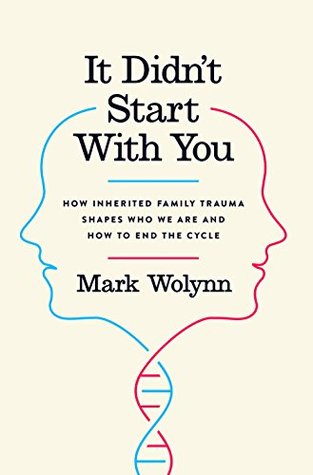More on this book
Community
Kindle Notes & Highlights
by
Mark Wolynn
Read between
December 26, 2023 - January 4, 2024
What I failed to realize at the time is that when we try to resist feeling something painful, we often protract the very pain we’re trying to avoid.
I learned how my mind continually taunted me with worst-case-scenario thinking and the lie that if I just worried hard enough, I could insulate myself from what I feared most.
The great teachers understand that where we come from affects where we go, and that what sits unresolved in our past influences our present. They know that our parents are important, regardless of whether they are good at parenting or not. There’s no way around it: The family story is our story. Like it or not, it resides within us.
Sometimes, the heart must break in order to open.
I was able to let myself receive my parents’ love and care—not in the way I had once expected it, but in the way they could give it.
And though some theorists postulate that language goes missing during trauma, I’ve seen firsthand again and again that this language is never lost. It roams the unconscious realms, waiting to be rediscovered.
Using specific questions, I help people discover the root cause behind the physical and emotional symptoms that keep them mired. Uncovering the right language not only exposes the trauma, it also unveils the tools and images needed for healing.
Sigmund Freud identified this pattern more than one hundred years ago. Traumatic reenactment, or “repetition compulsion,” as Freud called it, is an attempt of the unconscious to replay what’s unresolved, so we can “get it right.” This unconscious drive to relive past events could be one of the mechanisms at work when families repeat unresolved traumas in future generations.
An intellectual understanding by itself is rarely enough for a lasting shift to occur. Often, the awareness needs to be accompanied by a deeply felt visceral experience.
It’s human nature: when pain is too great, people tend to avoid it. Yet when we block the feelings, we unknowingly stunt the necessary healing process that can lead us to a natural release.
Once we understand what biological changes from stress and trauma are meant to do, she says, “we can develop a better way of explaining to ourselves what our true capabilities and potentials are.”7
the traumas we inherit or experience firsthand can not only create a legacy of distress, but also forge a legacy of strength and resilience that can be felt for generations to come.


